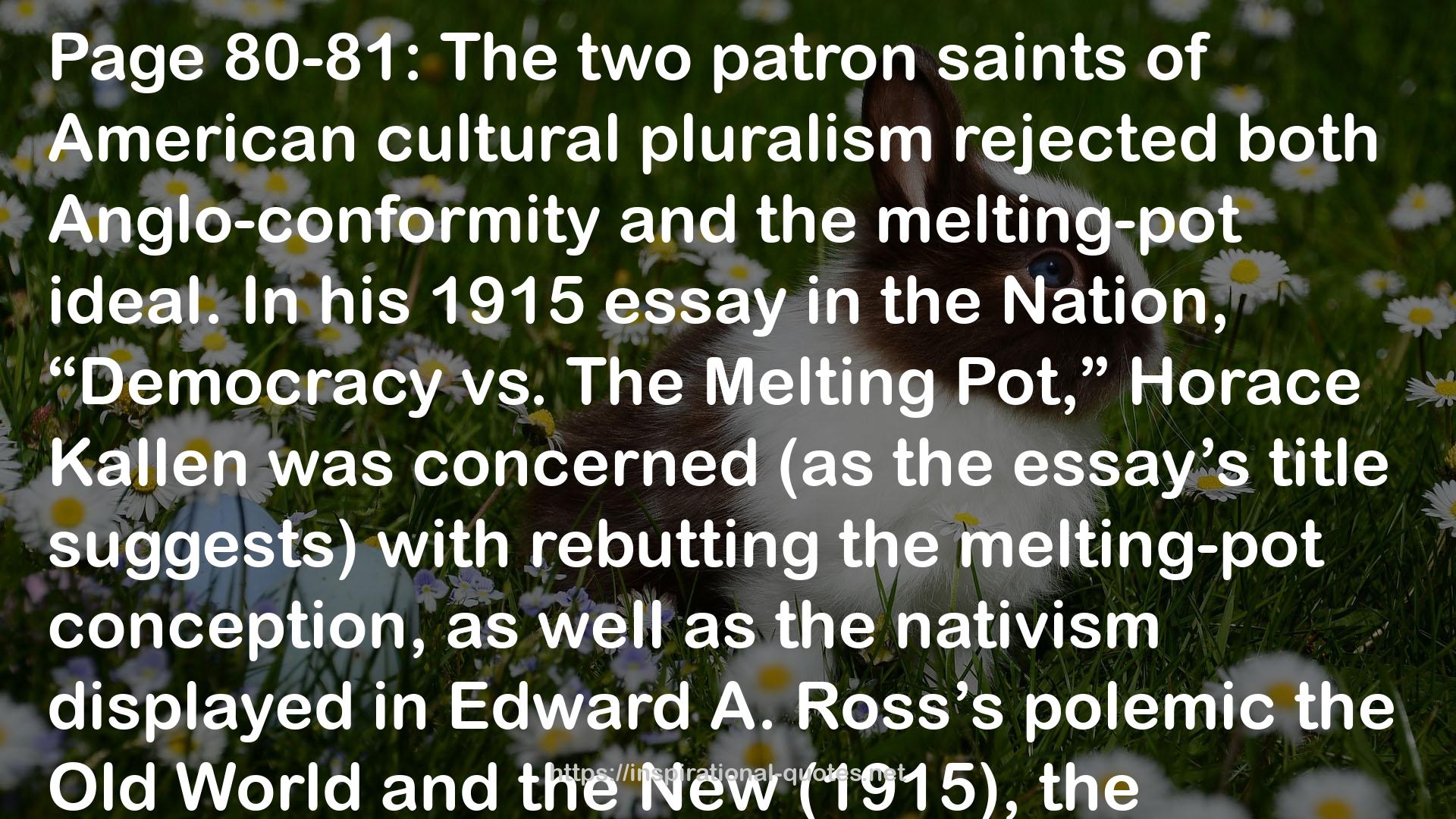" Page 80-81: The two patron saints of American cultural pluralism rejected both Anglo-conformity and the melting-pot ideal. In his 1915 essay in the Nation, “Democracy vs. The Melting Pot,” Horace Kallen was concerned (as the essay’s title suggests) with rebutting the melting-pot conception, as well as the nativism displayed in Edward A. Ross’s polemic the Old World and the New (1915), the immediate occasion of Kallen’s essay. Randolph Bourne, in his July 1916 essay “Trans-National America,” concentrated on contesting the claims of Anglo-conformists for the superiority of Anglo-American culture.* Rejecting assimilation, in its Anglo-conformist and melting-pot forms, both of which, in their different ways, envision the United States as a conventional nation-state with a single predominant culture, cultural pluralists counterposed the ideal of the United States as a nonnational confederation of minorities, a country without a majority nation.
* Kallen and Bourne arguable were influenced by their ethnic backgrounds, Kallen was a Harvard-educated German Jew who had immigrated to the United States with his family at the age of five, a Zionist and a proponent of secular (but not religious) Jewishness, Kallen was concerned about the effect on a distinct Jewish-American identity of the melting-pot ideal that Zangwill (an English Jew) promoted. "
― , The Next American Nation: The New Nationalism and the Fourth American Revolution
